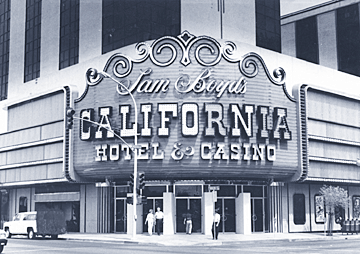


Casino resolution folds
A retirement system official
and the governor say a Las Vegas
deal would be chancyLegal eagle urged for OHA
By Pat Omandam
Star-BulletinIt would be too risky and very costly for the $9 billion state Employees Retirement System to invest in a Las Vegas casino, says retirement system Administrator David Shimabukuro.
Similar sentiments were echoed by Gov. Ben Cayetano, who opposed an idea to have the retirement system and the Office of Hawaiian Affairs examine a joint purchase of a casino.
"I think the casino business is probably the kind of business the ERS does not want to be involved in - and should not be," said Cayetano, who called it a risky venture.
"The ERS should be in ventures that are moderate risk if you ask me. Or if the ERS wants to get into risky ventures then it should get into something which is more productive," he said.
The House Labor Committee deferred votes on a House resolution long enough to miss yesterday's deadline to send resolutions to the Senate for discussion, essentially killing it.
House Concurrent Resolution 91 was introduced by Rep. Jerry Chang (D, Hilo) to address state-owed revenues from ceded lands to OHA and to adequately fund the ERS. Since many local people patronize the California Hotel & Casino in downtown Las Vegas, a Hawaii-themed establishment, Chang believes local people would flock to a similar Hawaii-owned casino knowing the money goes back home.
That makes perfect sense to Maurice Morita of Wailuku. Morita said many companies that do business in Hawaii send their profits to mainland headquarters instead of investing locally. Hawaii should do the same, he said.
And if OHA doesn't want to participate, the ERS should be encouraged to at least study the idea, Morita said.
Shimabukuro told lawmakers yesterday that buying a casino is not a prudent investment because it won't yield high returns for the retirement system that pays the pensions of state and county workers.
From June 1995 to June 1998, the retirement system's investment portfolio grew from $5.6 billion to $9 billion, he said.
OHA officials also testified against the resolutions, saying its board, not the Legislature, should decide how to spend trust funds. OHA has an investment portfolio of $314 million as of Jan. 31.
Anti-gambling advocate Dorothy M. Bobilin fears there would be a big marketing push locally to get residents to visit Las Vegas if OHA and the retirement system were to buy a casino there. It would add to the economic and social costs of gambling, she said.
Legislature Directory
Hawaii Revised Statutes
Legislature Bills
Legal eagle urged
By Craig Gima
for OHA case
Star-BulletinThe state should hire top-notch legal talent to defend a case before the U.S. Supreme Court challenging a state law that allows only Hawaiians to vote for Office of Hawaiian Affairs trustees, Gov. Ben Cayetano says.
And OHA should pay the legal bills, the governor said.
"It's our duty to defend OHA and it's OHA's duty to defend itself, quite frankly," Cayetano said.
He noted that the state hired a Harvard constitutional law expert in a successful defense of the leasehold conversion law before the Supreme Court in 1984.
Cayetano believes the lawsuit brought by Big Island rancher Harold "Freddy" Rice should be of concern to the state and to OHA because the case has larger ramifications including whether OHA's existence is constitutional.
"I happen to believe that OHA is constitutional and is an idea that is worth defending," Cayetano said.
He noted that the U.S. Supreme Court hears only a handful of cases each year and the decision being appealed was in favor of the state and OHA.
"If the issue was that clear-cut, they would have said we deny certiorari," Cayetano said. "It may be the court wants to make a statement once and for all that a certain kind of affirmative action or a certain kind of discrimination when it comes to ethnicity is OK. So it could go either way but it does create uncertainty because it could go either way."
January '97 OHA Ceded Lands Ruling